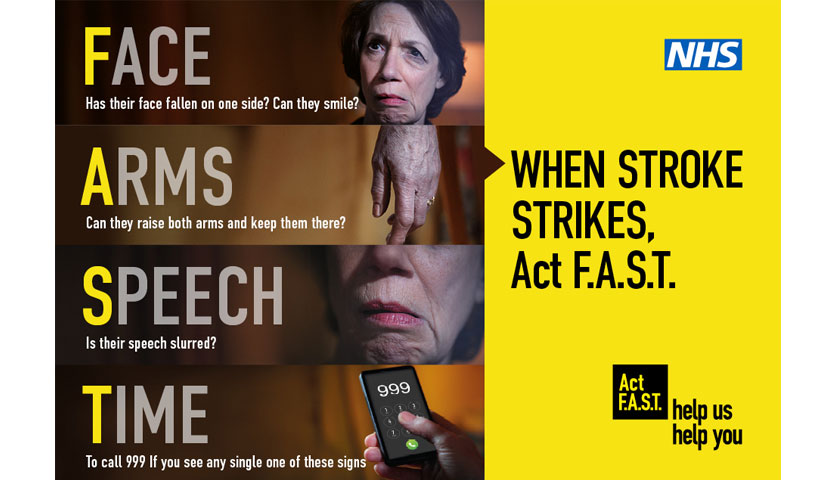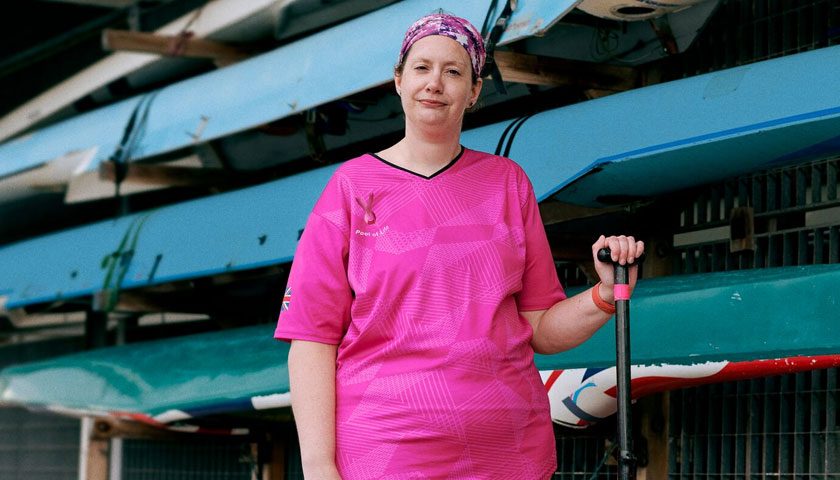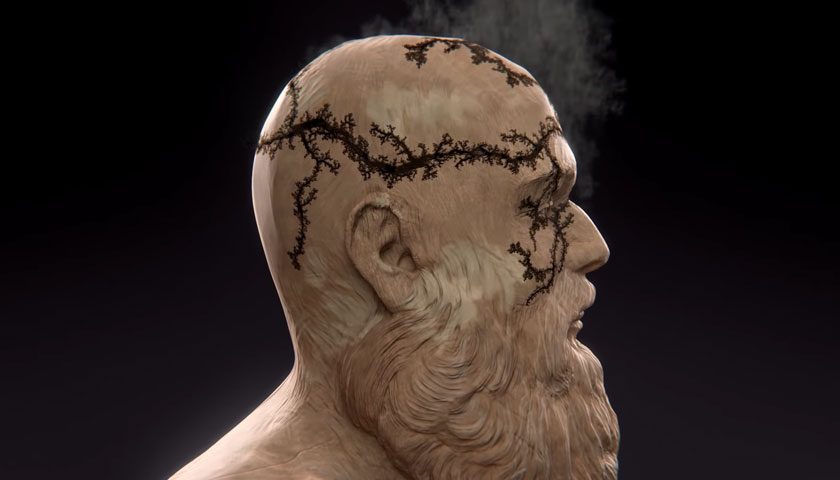The Act FAST campaign urges everyone to take immediate action on seeing any stroke symptoms to save lives – the NHS is open.
Data from the lockdown period of the coronavirus (COVID-19) pandemic last year show that admissions to hospital for stroke fell – a 12% drop between March and April 2020.
Stroke is a medical emergency and anyone experiencing symptoms should seek urgent help.
Early treatment not only saves lives but results in a greater chance of a better recovery, as well as a likely reduction in permanent disability from stroke.
Public Health England (PHE), supported by the Stroke Association, is relaunching the Act FAST campaign reminding people of the symptoms of stroke and why urgently calling 999 is vital in saving lives.
Stroke is a time sensitive condition which means that any hesitancy and delay in getting treatment kills brain cells and has sadly and unnecessarily proven to be fatal in the early phase of the pandemic.
Think and act FAST
The signs of stroke are:
- Face – has their face fallen on one side? Can they smile?
- Arms – can they raise both their arms and keep them there?
- Speech – is their speech slurred?
- Time – time to call 999
Clare Perkins, Head of the Cardiovascular Disease Programme at PHE, says:
Stroke is a medical emergency and is still one of the leading causes of death in England.
It is vital people know how to spot the signs of stroke and if they have any concerns about any early signs whatsoever to call an ambulance immediately – don’t wait until a second potentially more fatal stroke hits. The most common signs of stroke are changes to the face, arms and speech. Acting fast and getting treatment will help save lives and prevent people from severe disability.
The NHS is open, safe and if you suffer a stroke will want to see you as soon as possible – don’t hesitate, just call 999.
Around 1.9 million nerve cells in the brain are lost every minute that a stroke is left untreated, which can result in slurred speech and paralysis. If left untreated, a stroke can result in permanent disability or death.
There are around 100,000 strokes a year in the UK – at least one stroke every 5 minutes, sadly causing about 34,000 deaths per year.
Stroke is the fourth single leading cause of death in the UK and the single largest cause of complex disability.
Black people are twice as likely to have a stroke than white people. On average, people of black African, black Caribbean and South Asian descent in the UK have strokes at an earlier age.
With COVID-19 disproportionately affecting these groups, there’s an even greater need to ensure that they aren’t being affected by other conditions. The campaign includes specific activity targeted at communities from ethnic minorities.
Juliet Bouverie, Chief Executive of the Stroke Association, says:
Every 5 minutes, someone in the UK will have a stroke. Stroke kills tens of thousands and leaves others with complex and severe disability every year. Acting FAST is the biggest thing you can do to save a life. As soon as you see any of the signs of stroke in yourself or someone else, you need to call 999.
Last year we saw thousands of people with suspected stroke put off calling 999 due to fear of catching COVID-19 or being a burden on the NHS. People could now be living with more severe disability than they otherwise would because they put off calling 999. That’s why you need to know that acting FAST and calling 999 saves lives.
Some other signs of stroke or mini stroke can include:
- sudden loss of vision or blurred vision in one or both eyes
- sudden weakness or numbness on one side of your body (including in your leg)
- sudden memory loss or confusion
- sudden dizziness, unsteadiness or a sudden fall, especially with any of the other signs
The Act FAST campaign includes TV, Video on Demand, radio, social media, partnerships and PR activity.
Activity will also be targeted to ethnic minorities, working with community groups and using multicultural radio and TV channels.
Radio ads are available in English, Hindi and Punjabi.
We are working closely with charities who provide support to people who may be at risk of stroke and those who provide support to people who have had a stroke.
For more information on stroke, visit the NHS website.



